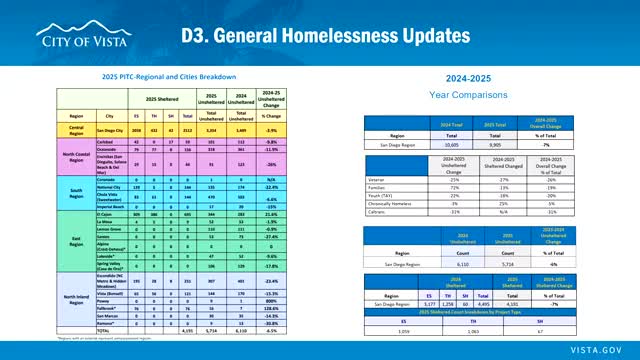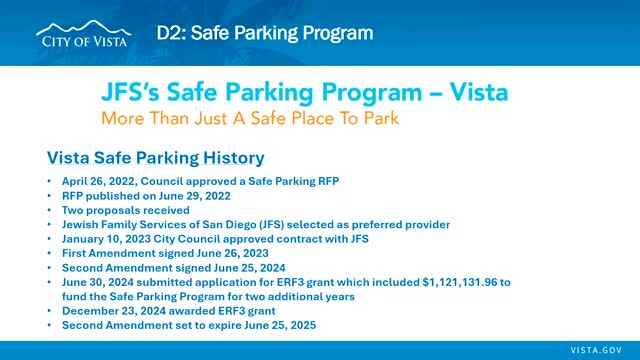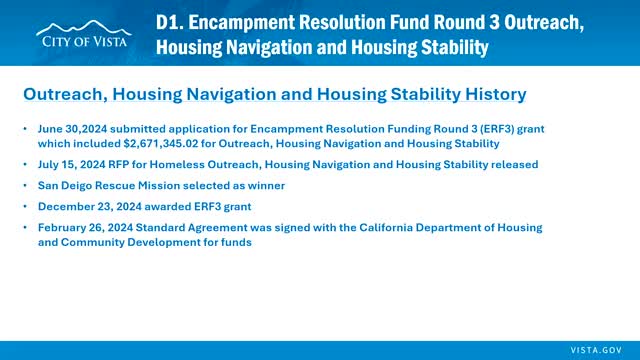Article not found
This article is no longer available. But don't worry—we've gathered other articles that discuss the same topic.

Vista committee reviews point-in-time, by-name list and program updates; asks for clearer counts and monthly reporting

Committee recommends continuing Vista safe-parking program with Jewish Family Service under ERF3 funds

